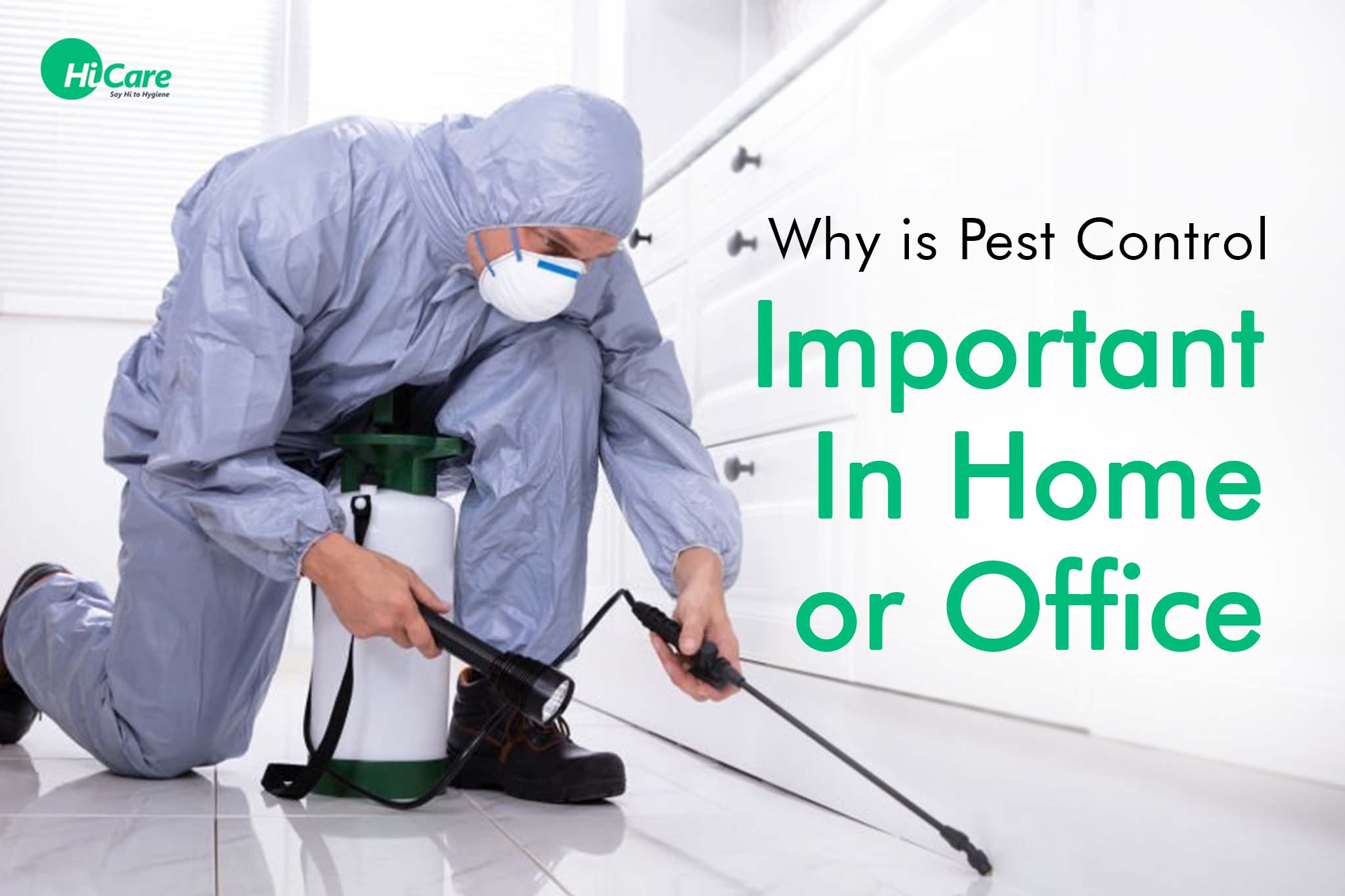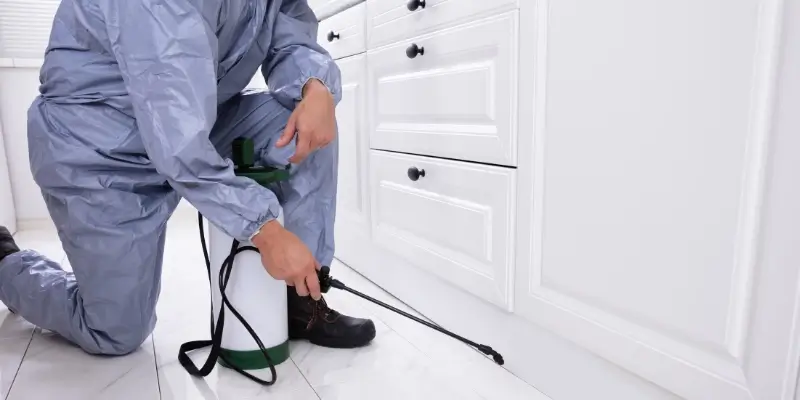Safe and Reputable Parasite Control for Lasting Security
The significance of secure and reputable insect control can not be overemphasized, specifically in a period where environmental issues are vital. Effective bug monitoring needs a diverse technique that balances environmental honesty with the requirement for efficient parasite reductions. By exploring environment-friendly options and integrated parasite management methods, home owners can achieve lasting security versus intrusive species while securing helpful communities. Nonetheless, the nuances of these techniques might not be right away clear, prompting a better exam of the techniques that can lead to sustainable bug control results. What actions can be required to make certain both safety and efficiency in pest management?
Understanding Bug Control Techniques
Bug control encompasses a variety of methods focused on handling and getting rid of unwanted pests and rodents that can intimidate both wellness and building. Comprehending these methods is vital for effective pest monitoring.
The key categories of insect control approaches include mechanical, organic, and chemical approaches. Mechanical methods involve physical obstacles and catches to protect against insect access and capture unwanted varieties. For instance, making use of screens on windows or utilizing sticky catches can considerably lower bug populaces without presenting dangerous substances.
Chemical pest control is usually one of the most recognized method, making use of pesticides to get rid of insects. These chemicals can be efficient however should be used with caution to prevent negative impacts on non-target types and the atmosphere.
Benefits of Eco-Friendly Solutions
How can eco-friendly remedies transform insect control techniques? The adoption of environmentally friendly bug control techniques supplies various benefits, considerably improving the effectiveness and security of bug monitoring.

Another benefit is the positive impact on regional biodiversity. Green services are developed to target specific parasites while protecting helpful insects and wildlife, promoting a well balanced ecosystem. This method lines up with the growing customer demand for lasting techniques, boosting the credibility of insect control providers.
Integrated Pest Administration Strategies
The application of green remedies naturally causes the fostering of Integrated Insect Administration (IPM) approaches, which even more boost bug control effectiveness. IPM is a holistic method that incorporates multiple strategies to manage insect populaces while decreasing ecological effect. This method stresses using organic, social, mechanical, and chemical controls, making sure a lasting and well balanced method of pest management.
One basic aspect of IPM is the extensive evaluation of insect activity and environmental conditions. By keeping track of insect populations and recognizing their life process, practitioners can implement targeted treatments that interfere with the parasite's habitat or lifecycle, decreasing reliance on chemical pesticides. In addition, cultural practices such as plant turning and habitat manipulation can considerably diminish parasite establishment and recreation.
One more essential component is the use of see this here organic control agents, such as valuable pests or bacteria, which can naturally subdue pest populations. When chemical applications are needed, IPM prioritizes using low-risk pesticides and applies them precisely, reducing direct exposure to non-target microorganisms and human beings.
Including IPM strategies not just enhances parasite control efficiency yet additionally promotes a safer ecological community, lining up with the expanding demand for lasting practices in parasite administration.
Safe Practices for House Owners
Recognizing the value of secure practices in parasite control can empower home owners to properly handle parasite issues while securing their health and wellness and the environment. Carrying out safe approaches and precautionary actions is crucial in minimizing exposure to dangerous chemicals.
House owners should initially analyze their setting for conditions that bring in parasites, such as standing clutter, food, and water waste. Routinely cleaning and sealing entry factors can deter pests from invading the home. Using natural deterrents, such as necessary oils or diatomaceous planet, can supply efficient options to chemical pesticides.
When chemical therapies are needed, property owners ought to decide for products that are especially classified as risk-free for residential usage. It is necessary to adhere to application guidelines diligently to stay clear of overexposure. In addition, making use of targeted treatments in locations where pests are recognized, instead than covering splashing, can significantly minimize chemical usage.
Finally, maintaining open interaction with pest control professionals is essential. House owners ought to ask concerning the security of products used and demand environment-friendly choices whenever feasible. By adopting these risk-free techniques, home owners can produce a much healthier living setting while effectively handling pest issues.

Tips for Long-Term Defense
Establishing a parasite monitoring strategy that highlights long-lasting security can substantially enhance the effectiveness of best indoor termite treatment the safe methods formerly discussed. To accomplish this, property owners must carry out normal assessments of their residential or commercial property, concentrating on hidden areas such as attics, cellars, and crawl spaces. Early detection of insect activity is essential in preventing infestations from taking hold.
Furthermore, preserving a tidy setting is vital. This includes correct food storage space, promptly cleaning spills, and regularly getting rid of waste. These practices reduce attractants that draw parasites right into the home. Additionally, sealing entry factors, such as splits around doors and windows, can effectively obstruct possible pest access.
Landscape design needs to likewise be considered; keeping plants trimmed and maintaining a distance between vegetation and the home decreases hiding areas for pests. Utilizing natural deterrents, such as essential oils or diatomaceous earth, can even more dissuade infestations without turning to harsh chemicals.
Last but not least, teaming up with a professional pest control service for periodic assessments can offer an added layer of safety. These experts can supply customized suggestions and advanced treatments, making certain that your home stays safeguarded against pests in the long-term.
Conclusion
Finally, trustworthy and risk-free bug control calls for a multifaceted approach that emphasizes green methods and integrated parasite monitoring. By carrying out natural deterrents, conducting normal assessments, and preserving proper sanitation, homeowner can considerably minimize bug populaces while blog securing useful bugs and the atmosphere. Collaboration with specialist bug control services improves the efficiency of these techniques, guaranteeing customized options that offer long-term security and peace of mind versus future problems.
Reliable pest management requires a complex strategy that balances ecological honesty with the demand for efficient insect suppression. The fostering of green insect control approaches uses countless advantages, dramatically enhancing the effectiveness and safety of bug administration.The application of eco-friendly options normally leads to the adoption of Integrated Insect Administration (IPM) approaches, which better improve insect control efficacy. exterminator coquitlam. By checking bug populaces and identifying their life cycles, practitioners can implement targeted treatments that interrupt the insect's environment or lifecycle, decreasing reliance on chemical pesticides.In verdict, risk-free and trusted bug control requires a diverse technique that stresses environmentally friendly techniques and incorporated bug management